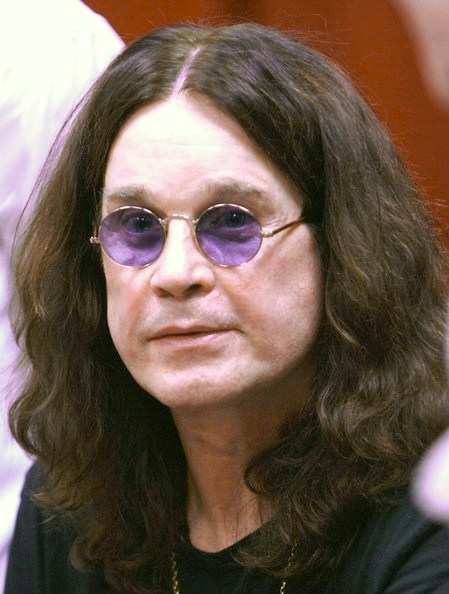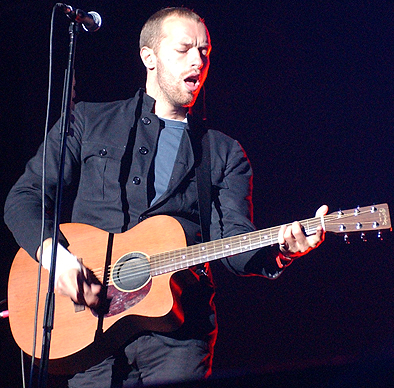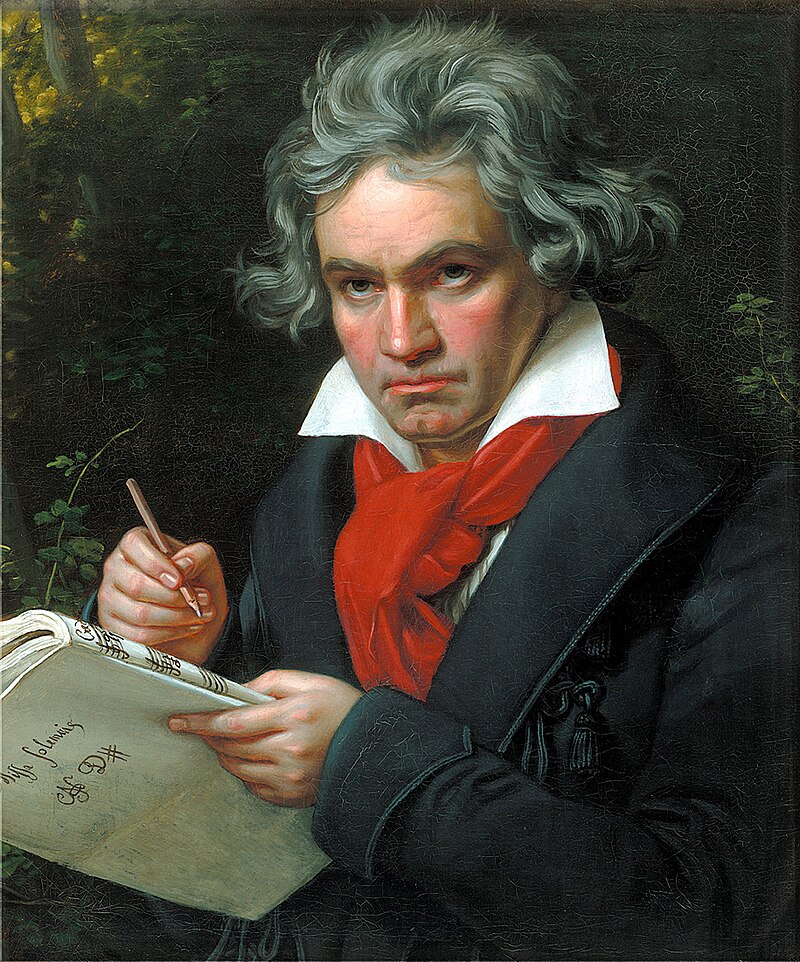If you’ve ever been to a rock concert, you will know how loud live music can be. The sound systems at concerts and nightclubs can reach up to 140 dB, making the job of a musician particularly dangerous for hearing.
Over the years, many of the world’s most famous and beloved musicians have experienced some form or hearing loss or impairment, ranging from consistent tinnitus to complete deafness. One statistic from the Hearing Education and Awareness for Rockers estimates that 60% of Rock and Roll Hall of Fame inductees are hearing impaired.

(Photo: Wikipedia.org) Neil Young is one of folk and rock music's biggest influences.
One of Canada’s greatest songwriters, Neil Young, is a long-time sufferer of tinnitus. This form of hearing loss is what most people experience as temporary ringing in the ears. For Young, the tinnitus eventually impacted his music, leading him to create softer music in the 90s.
Speaking to MOJO Magazine, Young said, “I made 'Harvest Moon' [in 1992] because I didn't want to hear any loud sounds. I still have a little bit of tinnitus, but fortunately now I'm not as sensitive to loud sounds as I was for a year after the mixing of 'Weld’ [in 1991]. My hearing's not perfect but it's okay.”

(Photo: Wikipedia.org) Ozzy Osbourne is the lead singer of metal band, Black Sabbath
When you think of loud music, it’s hard not to think of Ozzy Osbourne, a man who led a stadium to the Guinness world record for the longest crowd scream. While the rocker’s hearing damage isn’t as bad as you might suspect, he does suffer from permanent tinnitus.
"I suffer from permanent tinnitus . . . which means I've got this constant ringing in my ears, which has also made me somewhat deaf (or 'conveniently deaf,' as Sharon calls it),” Osbourne told the Sunday Times of London. “It's like this Whee! noise in my head all the time. Should have worn earplugs, I guess."

(Photo: PhilCollins.co.uk) Phil Collins has sold over 200 million records as a result of his work with Genesis and as a solo artist.
Beloved as the lead singer of Genesis and a favourite among the younger set for the soundtrack to Disney’s Tarzan, Phil Collins is musical legend whose career came to an end partly as the result of hearing loss. The singer’s hearing loss has impacted his ability to perform and he now uses hearing aids.
Collins told “Die Zeit” about his experience with sudden hearing loss, saying, “"At the time, I was recording in the States and had spent the day singing in the studio. Then I collected my daughter from school. We got home, had something to eat, played a video game. Then suddenly my ear went sssssssshh. Within a second my left ear simply closed down. As if I had been under water. I tried to clear it by pinching my nose. But it made no difference. So I thought it will sort itself out. But it didn’t."
.png)
(Photo: Wikipedia) Brian Wilson rocketed to fame in the 1960s as a founding member of the Beach Boys.
Unlike many of his contemporaries, Beach Boys singer Brian Wilson’s hearing loss has been a lifelong struggle. As a child, it was discovered that the popular singer is almost completely deaf in his right ear. While the exact cause of his hearing loss isn’t known, the hearing loss didn’t stop him from going on to become one of the most successful musicians of his time.

(Photo: Wikipedia) Eric Clapton is the only three-time inductee into the Rock and Roll Hall of Fame
In his early days, Eric Clapton and his band Cream were all about being loud.
“I probably had two 100-watt stacks at the height of things and I would turn one on for guitar solos,” Clapton told the Daily Express newspaper. “It was just mad!”
The excessive decibels and time on stage brought on tinnitus for the famous guitarist and singer. Some say the singer is partially deaf in one ear as well!
“I started using Fender Deluxe Reverb amps and 50-watt Marshalls around '97, after I started having some problems with tinnitus. It was my own doing — being irresponsible and thinking I was invincible ... Yes, though it has been better lately. Take care and wear plugs.”

(Photo: Wikipedia) As the lead guitarist and sonqriter for The Who, Townshend is considered one of the most influential musicians of all time.
Pete Townshend is best known as the guitarist for The Who, a band that held the world record for being the loudest band for 10 years. Of course, that kind of sustained exposure to loud decibels has lead Townshend (and his bandmates) to some serious hearing problems.
"I have severe hearing damage. It's manifested itself as tinnitus, ringing in the ears at frequencies that I play guitar. It hurts, it's painful, and it's frustrating."
If that weren’t enough, Townshend was also left completely deaf in one ear as a result of loud shoes and his dummer blowing up his drum set during a live performance in the 60s.

(Photo: Wikipedia) Chris Martin is the frontman of Coldplay, one of the most successful modern rock bands in the world.
“Looking after your ears is unfortunately something you don’t think about until there’s a problem.”
The lead singer of Coldplay says that his hearing damage is largely the result of listening to loud music as a teen. Chris Martin has suffered with tinnitus for more than a decade and he began wearing earplugs during his concerts after doctors warned him that the hearing loss could end his career.
“I’ve had tinnitus for about ten years, and since I started protecting my ears it hasn’t got any worse – touch wood,” Martin has said. “But I wish I’d thought about it earlier. Now [the band] always use moulded filter plugs, or in-ear monitors, to try to protect our ears”

(Photo: Wikipedia) Beethoven began to lose his hearing in his mid-20s, yet went on to compose some of the greatest symphonies of all time.
The most famous of the musicians with hearing loss, Beethoven was just 26 years old when his severe tinnitus began in 1796. Not only did the hearing loss cause him difficulty in hearing music, but he also began avoiding conversations as well. In 1811, Beethoven failed in his attempt to perform his own Piano Concerto No. 5 and resolved to never perform publicly again.
By 1824, he was unable to hear the orchestra or the thunderous applause behind him at a concert and had to be turned around to see the audience’s adulation. Ultimately, the cause of Beethoven’s hearing loss is unknown, and while the struggle and loss of his hearing was very difficult to the musical genius, he continued on to change music forever.
-4.png)
One of the biggest questions around hearing aids is how to pay for them, which agencies provide assistance, and who qualifies for which assistance. Let’s break it down! Alberta Aids to Daily Living (AADL) This is...
Read More
Introducing Our New Financing Options At Academy, we are committed to providing our clients with the best possible service and support. We’re excited to introduce our new financing partner Humm to make it easier than ever to get the...
Read More-3.png)
“If the hearing aids are programmed for my hearing loss, why do I need to come for follow up appointments? They either work or they don’t.” The answer: Hearing healthcare is a journey. Hearing loss needs to be monitored....
Read More